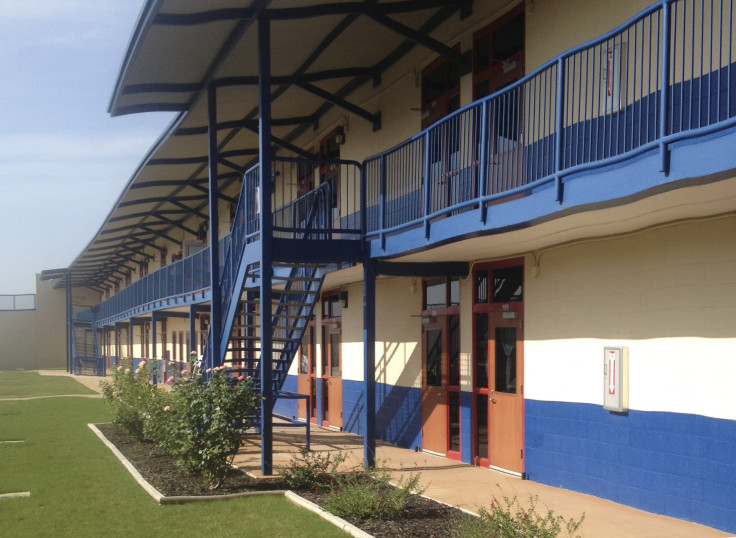Immigrant Mothers Begin Second Hunger Strike At Massive Texas Detention Center

Undocumented immigrants from Central America at a huge family detention center in Texas began a second hunger strike in a month Wednesday to protest what they say are poor conditions and mistreatment by officials. A group of 10 mothers at the Karnes County Residential Center are having just one meal a day and declining all other food, said a spokesman for the Refugee and Immigrant Center for Education and Legal Services (Raices), an immigrant advocacy group and legal service provider that has assisted some of the detainees.
Mohammad Abdollahi, a Raices spokesman, also told the Houston Chronicle that the mothers are refusing to send their children to the detention center's school.
This is not the first such protest at the Karnes center, one of three such facilities in Texas reserved for Central American migrants who illegally crossed the U.S. border in increasing numbers over the past year.
A group of around 78 women participated in a hunger strike on March 31, which lasted five days. They signed a letter demanding that they and their children be released. “We have come to this country with our children in search of refuge, and they are treating us like criminals,” the letter read.
The U.S. Immigration and Customs Enforcement Authority (ICE) issued a statement saying it would monitor detainees’ health and meal intake in light of the hunger strike. “ICE fully respects the rights of all people to voice their opinion without interference, and all detainees, including those in residential facilities such as Karnes, are permitted to do so,” the statement said, according to the Associated Press.
Since the number of Central American migrants crossing the border – unaccompanied children and family units, usually comprising mothers with children – surged in the summer of 2014, the Obama administration has taken a number of steps to stem the influx. It sped up immigration hearings of unaccompanied child migrants, launched in-country refugee processing programs in Guatemala, Honduras and El Salvador and worked with Mexican authorities to increase deportations in Mexico.
It also revived family detentions in the U.S., a practice that had been widely discontinued in 2009 after complaints from civil rights activists led to the shutdown of a large family detention center in central Texas. There are currently three family detention centers operating in the U.S.: the 532-bed facility at Karnes, another 2,400-bed center in Dilley, Texas, and a smaller center in Berks County, Pennsylvania, that contains 85 beds. The Karnes and Dilley facilities are run by two of the country’s largest private prison groups, GEO Group and Corrections Corporation of America, respectively. Originally the administration detained migrants at another center in Artesia, New Mexico, but it was shut down in late 2014 after multiple complaints of abuse by authorities.
Advocates say detention adds further trauma to mothers and families fleeing violence in their home countries, and often denies due process for immigrants seeking asylum or other forms of relief in the United States. Because the facilities are often in remote areas, it’s difficult to access lawyers or mental health counseling. Consultations, as well as immigration hearings, are often done via teleconference.
Homeland Security Secretary Jeh Johnson has said that family detentions were meant to send a signal to other immigrants that they would not be simply released into the U.S. if they crossed the border. But earlier this year, a federal judge ruled that the Obama administration could not use family detentions as a deterrent. Since then, however, some attorneys have said that some immigrants are receiving very high bonds, between $4,000 and $7,500, and often aren’t able to pay.
Family detentions have also been controversial in light of a 1997 legal settlement in federal court that determined that unaccompanied migrant children must be released to relatives rather than being held in detention. But the Obama administration has argued that those rules don’t apply to children illegally crossing the border with their families.
Meanwhile, lawsuits are still pending over the government’s treatment of unaccompanied children. This week a federal judge decided to move forward with a hearing over whether the more than 70,000 unaccompanied children who have crossed the U.S. border in the past year should be guaranteed legal representation before they are put into deportation proceedings. The Department of Justice has argued that it has no responsibility to provide legal counsel to undocumented migrants at the government’s expense.
© Copyright IBTimes 2025. All rights reserved.





















